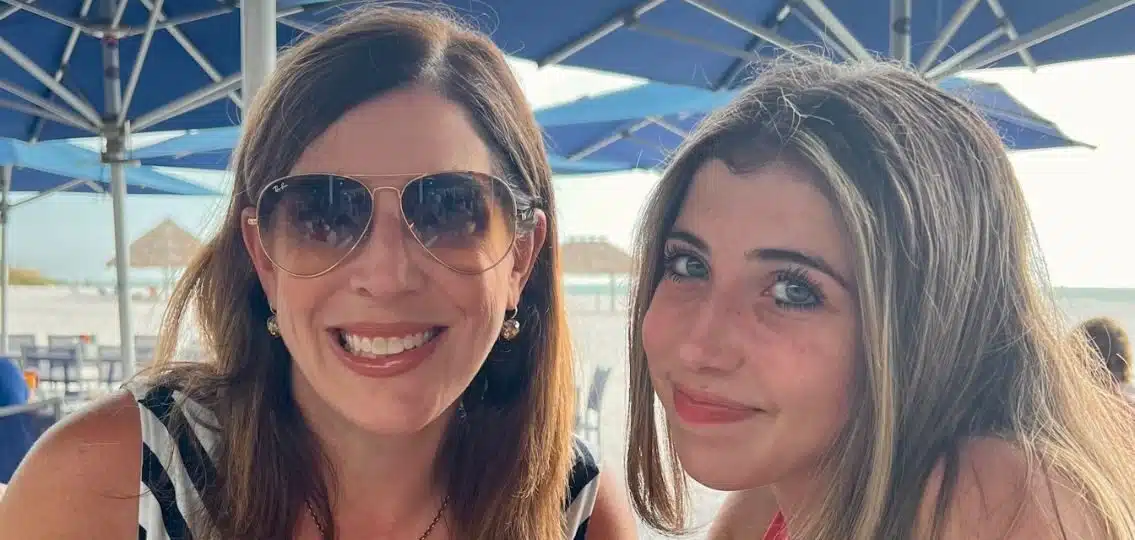There are subjects rarely discussed or glossed over in parenting. People may warn us that the social dynamics of middle school is rough on kids, but they often forget to warn us it might be just as rough on parents. Maybe it’s too painful to mention?
I’m going to talk about it, anyway.
The biggest surprise of my parenting journey thus far has been navigating adult friendships while my daughter was in middle school.
I thought I knew how to do it. After all, I was a middle school counselor adept at navigating social structures and I had plenty of experience making friends. The close friendships I made in high school and college are friendships I treasure to this day. And later, when I discovered becoming a parent means making and cultivating new mommy friendships, I learned how to make friends as an adult too.
My new mommy friendships started in the little art or music class around the corner before they morphed into the world of play dates, PTA meetings, and birthday parties. Some mom friendships grew naturally, and others had to be strategically curated. At some point, between carpools and school holiday parties, field days and book fairs, these mom friends became my people.
But what happens when the friendships you’ve so carefully cultivated turn out to be fake? What happens when you discover that the people you thought would have your back are actually talking behind your back about your daughter? And how do you console yourself if, instead of wrapping you up with support, showing compassion, and helping you figure out how to navigate through your daughter’s trauma and heartbreak, those same friendships dissolve and disappear? I was unprepared for when friendships end so dramatically.
When this happened to me, I was well into my forties. I sobbed giant tears as I was driving down a highway in my SUV on my way to an event because, as I had just found out, these women, who I thought were my friends, were disparaging my daughter.
What I learned in that moment — what those moms taught me when they abandoned me and my daughter when we were in crisis — changed how I view and choose friendships. The horrible realization that I couldn’t trust or depend on these people and that I had to end these friendships shaped how I moved forward and helped myself and my daughter heal. It also helped me give better advice to the teens who show up for guidance in my school office with friendship issues.
This is what I tell those teens and anyone else struggling with friendship.
Know you are worthy of true friendship.
First and most important, know you are worthy of true friendship, meaning friends who will love you at their best and worst, when you make mistakes, when you succeed wildly, and every time in between.
Be clear about the kind of relationship you want.
You get to set your own definition of what true friendship is. You also get to decide on your boundaries. What terms of that friendship are non-negotiable? If your friend crosses the boundary you set on your relationship, you get to determine whether that relationship is unhealthy for you and if you want to end it.
That day in my car, I sobbed those tears because I realized my friendships were unhealthy for me. I told myself this is absurd. I am an adult. I have other cherished friendships and I don’t have time for this nonsense. You have this same permission to move on.
It’s always okay to make better choices about the people you spend time with.
Evaluating your social circles and making adjustments is healthy, and sometimes you might need to make big changes. Changing friends doesn’t mean you are giving up or running away from problems with your old ones. It’s you saying to yourself, “I deserve to be treated better than this.”
The friends you think you want might not be the friends you need.
Navigating friendships can be tricky and painful. I mourned those lost friendships. But when I dried my tears and looked around, I quickly realized I did not need or want them in my life.
It helped that I had other friends I could turn to for support — including an amazing group of moms I have watched hundreds of basketball and baseball games with, and who, even on my worst day, or my son’s worst day, would not abandon us. My friendships with them were healthy and well-established. I hit the mom-friend jackpot with these women.
If it’s difficult for you to figure out if a friendship is true and healthy, or you’re unclear about how to set boundaries, it’s okay to ask for help so you can figure out if you should stay in a friendship or let them go.
Learn to recognize your true friends. And when you find them, hold them close.
As Shauna Niequest writes in her book, Bittersweet: Thoughts on Change, Grace, and Learning the Hard Way, “Everybody has a home team: It’s the people you call when you get a flat tire or when something terrible happens. It’s the people who, near or far, know everything that’s wrong with you and love you anyways. These are the ones who tell you their secrets, who get themselves a glass of water without asking when they’re at your house. These are the people who cry when you cry. These are your people, your middle-of-the-night, no-matter-what people.”
You can do this friend thing, Mama, and you can help your teen do it too. When you (or your teen) find those special people, keep them close. They’ll be your home team, the friends you come back to time and time again, the ones who will stick with you through mistake after mistake without judgment, and will offer you comfort and grace. Great friends are out there. You’ll find them. They’re the ones who offer you their love and support when you need it most.




